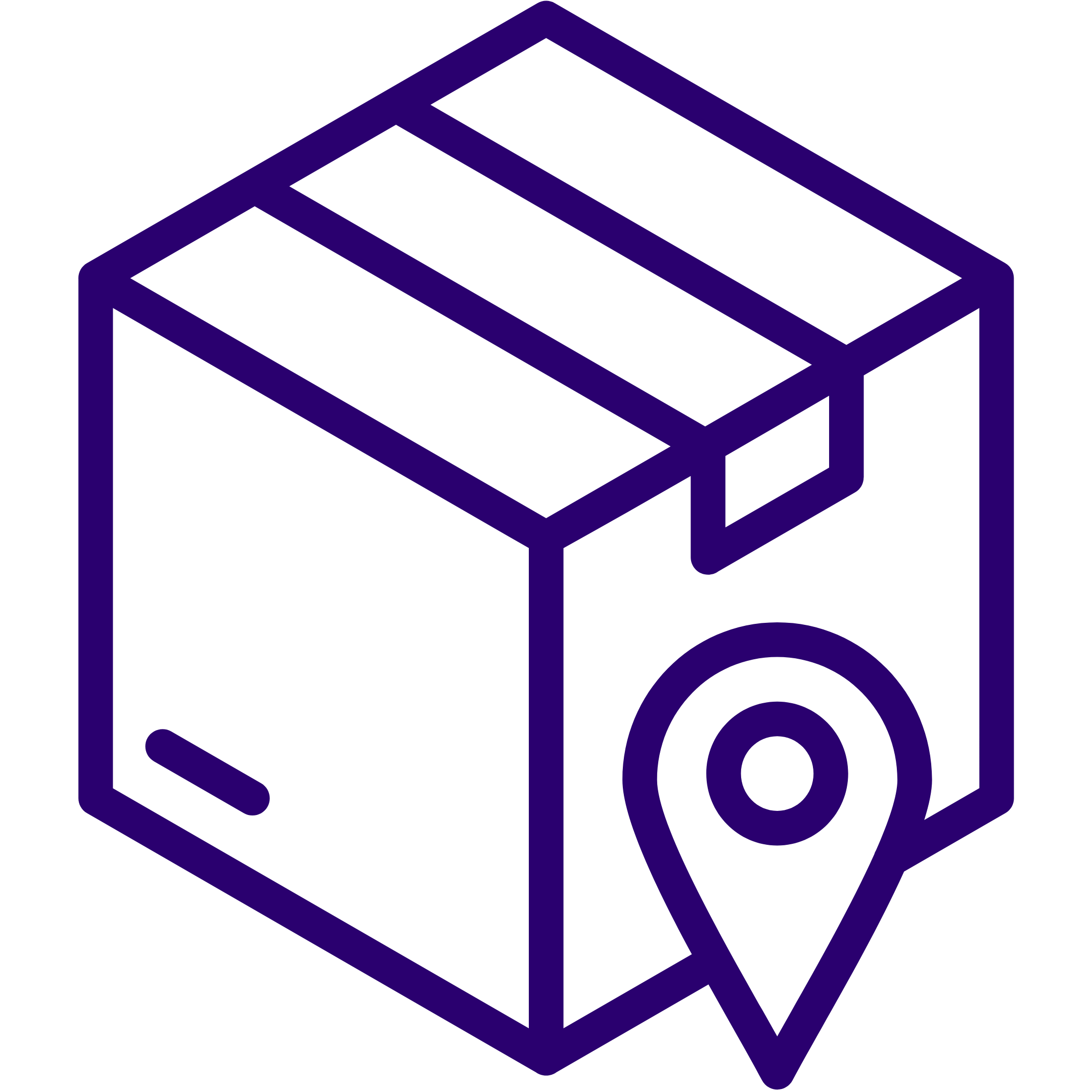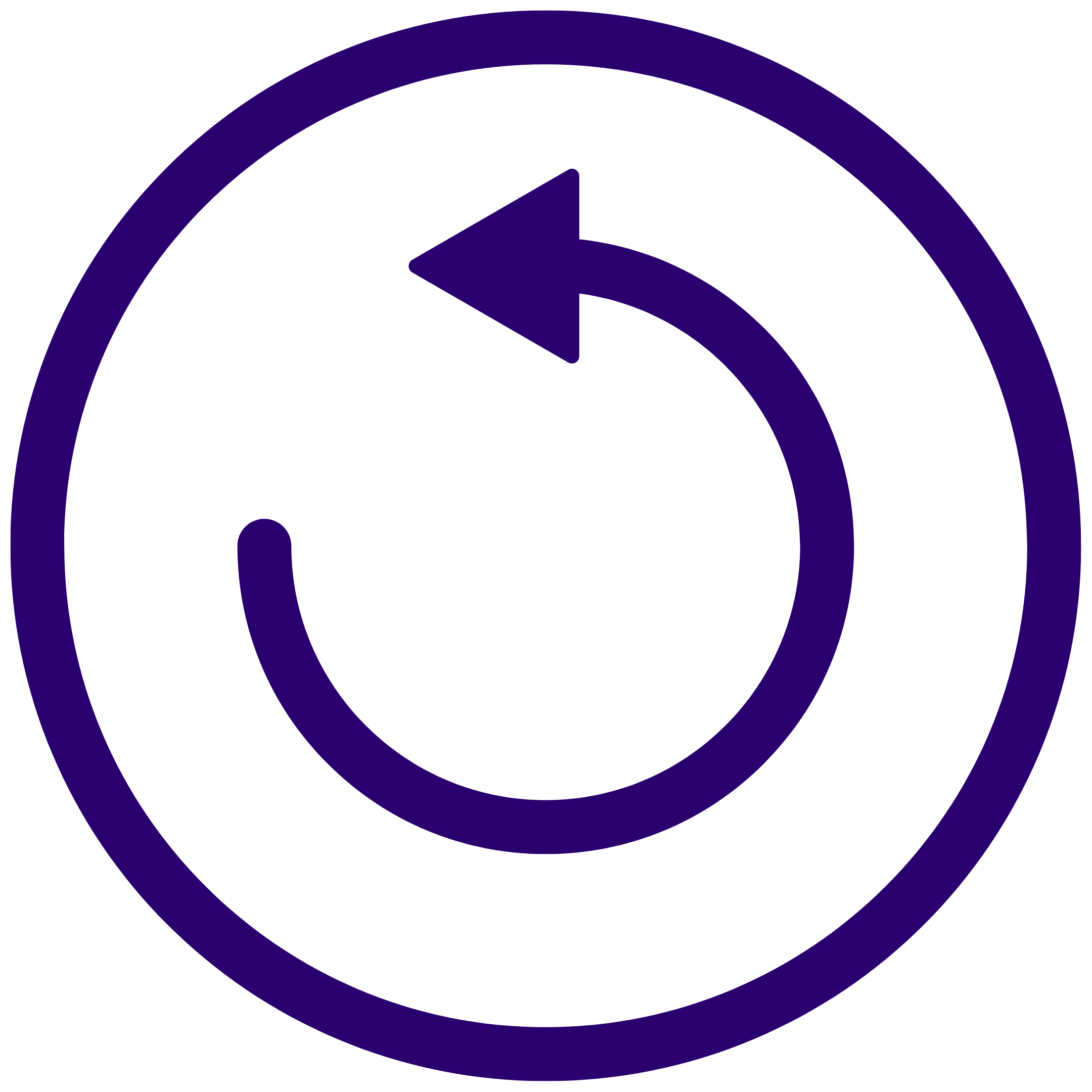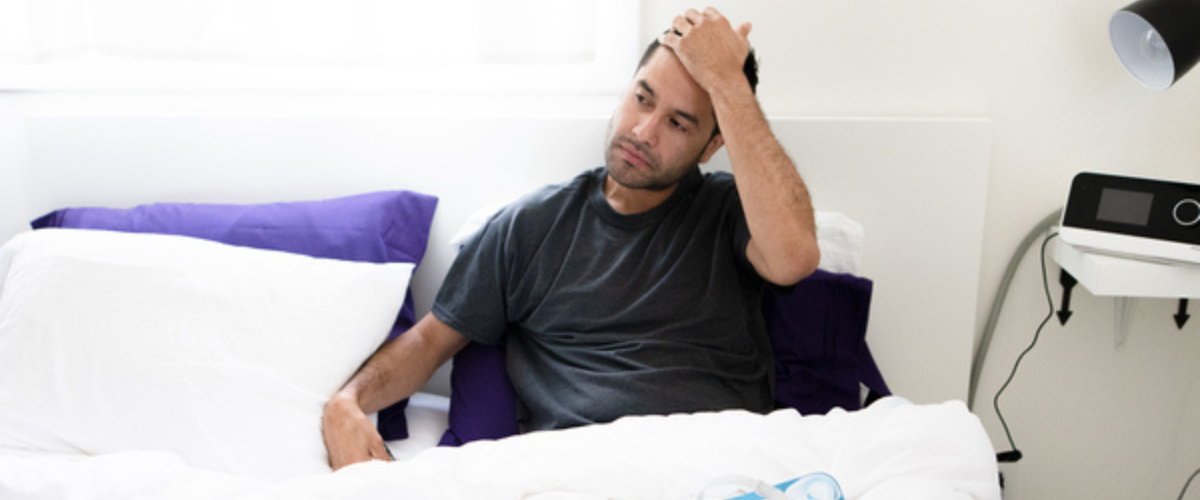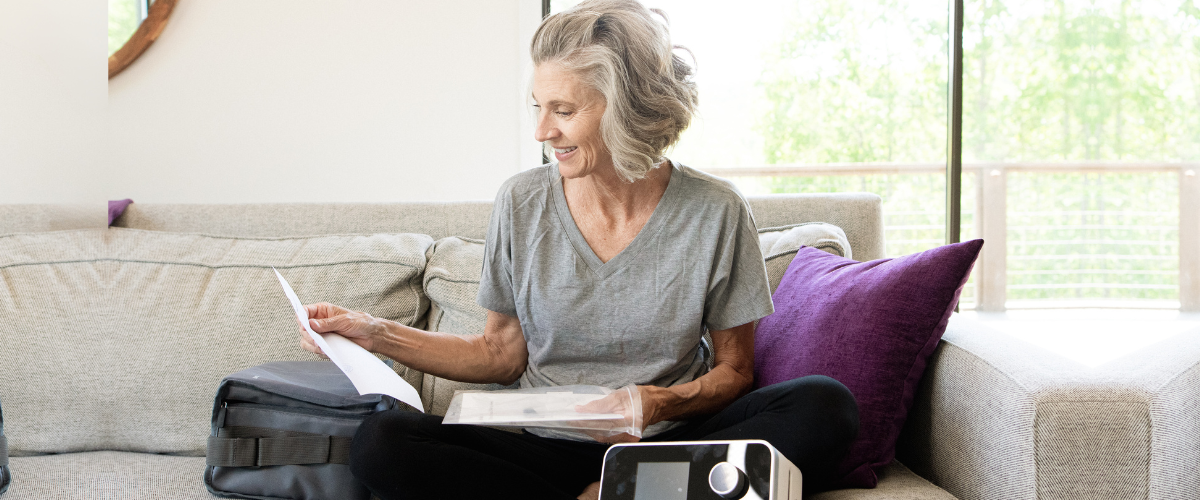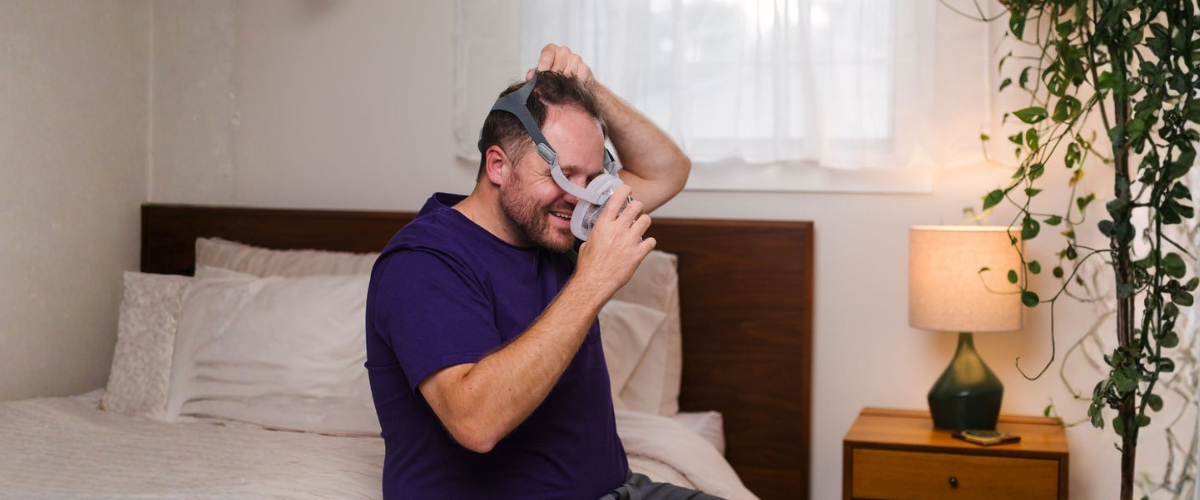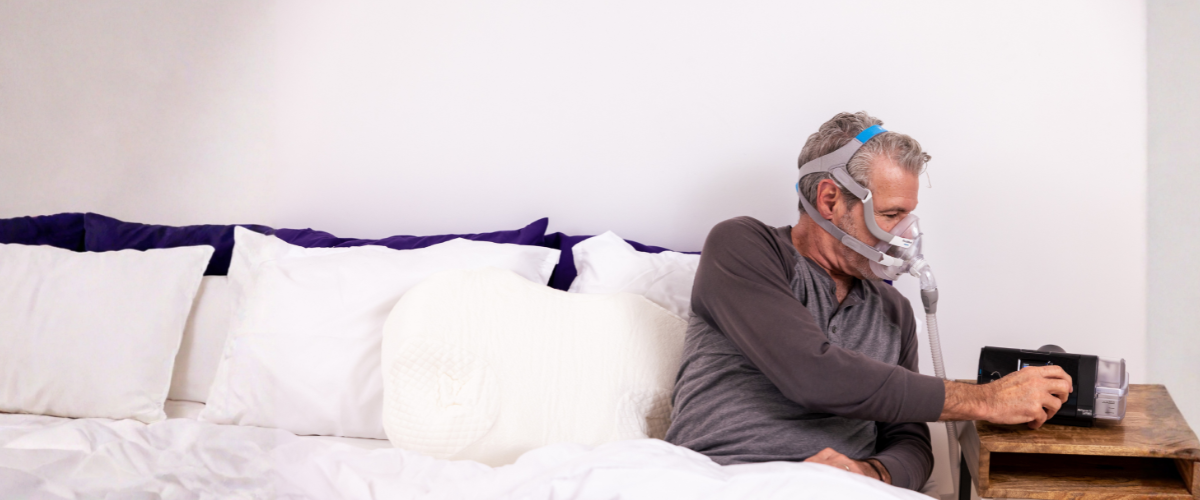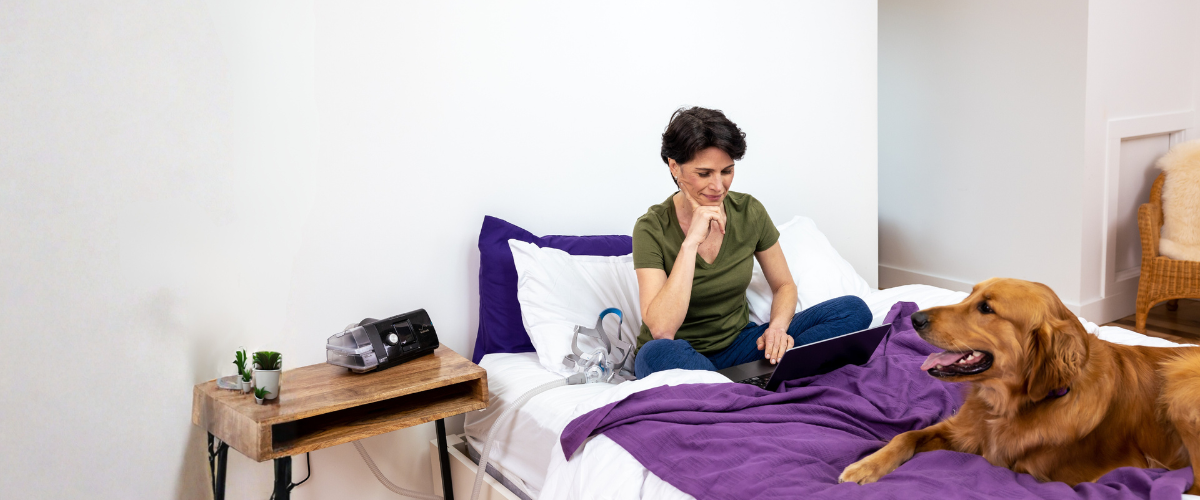The Unsettling Truth About Mouth Breathing and Sleep Apnea — and Their Impact on Your Sleep
Breathing is something most of us take for granted. It's an involuntary action that sustains us from the moment we're born until our last breath. However, not all breathing is created equal. While most of us naturally breathe through our noses, some individuals are habitual mouth breathers. In the medical sense, this seemingly innocuous habit and natural style of breathing can have significant consequences, particularly when it comes to sleep apnea and overall sleep quality.
What is a "Mouth Breather"?
Before delving into the connection between mouth breathing and sleep apnea, let's define what it means to be a mouth breather. Simply put, a mouth breather is someone who habitually breathes through their mouth rather than their nose. This may occur during the day or, more importantly, during sleep.
Mouth breathing, whether during wakefulness or sleep, can be caused by various factors, and understanding these underlying causes is crucial for effective management. Below you'll find a detailed exploration of what may cause mouth breathing in both situations.
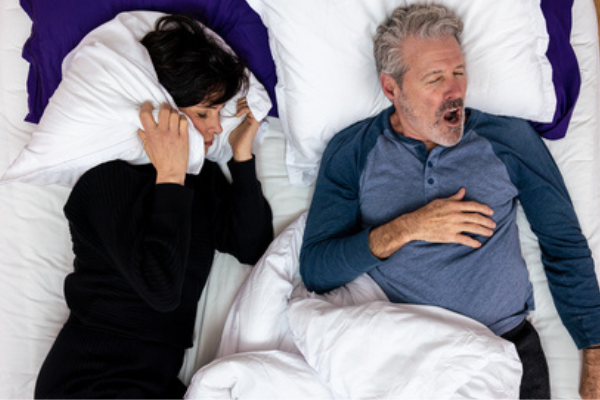

Causes of Mouth Breathing During Wakefulness:
- Nasal Congestion: One of the most common reasons for mouth breathing when awake is nasal congestion. When the nasal passages are blocked due to allergies, sinusitis, or a cold, individuals may naturally switch to mouth breathing to get sufficient air.
- Structural Abnormalities: Structural issues like deviated septum or nasal polyps can restrict airflow through the nose, making it difficult to breathe through the nasal passages, especially when awake.
- Chronic Allergies: Allergic reactions to pollen, dust, or other allergens can lead to persistent nasal congestion, causing individuals to resort to mouth breathing as a way to bypass the blocked nasal passages.
- Environmental Factors: Dry or polluted air can irritate the nasal passages and lead to mouth breathing. Workplace conditions, such as exposure to airborne irritants, can also contribute to this habit.
- Habitual Behavior: Some people develop the habit of breathing through their mouths during wakefulness, often due to childhood habits or a perceived ease of breathing through the mouth.
- Anxiety or Stress: Stress and anxiety can lead to shallow and rapid breathing, which may naturally shift to mouth breathing. This can be particularly noticeable in situations of acute stress or panic.
Causes of Mouth Breathing During Sleep:
- Obstructive Sleep Apnea (OSA): OSA is a common sleep disorder characterized by repeated pauses in breathing during sleep. Individuals with OSA often breathe through their mouths to compensate for the partial or complete blockage of the upper airway. This habit worsens the condition.
- Nasal Obstruction: Just as during wakefulness, nasal congestion or structural issues can cause mouth breathing during sleep. When the nasal passages are blocked, individuals tend to open their mouths to breathe more comfortably.
- Enlarged Tonsils and Adenoids: Enlarged tonsils and adenoids can obstruct the airway, making it difficult to breathe through the nose during sleep. This can lead to habitual mouth breathing.
- Sleep Position: Sleeping in certain positions, especially on the back, can promote mouth breathing, as gravity may cause the jaw and tongue to fall backward and partially block the throat.
- Alcohol and Sedative Use: The relaxing effects of alcohol and sedatives can relax throat muscles, making it easier for the mouth to fall open during sleep and encourage mouth breathing.
- Central Sleep Apnea (CSA): CSA, less common than OSA, is characterized by a disruption in the brain's signals to control breathing during sleep. While CSA doesn't necessarily result in mouth breathing, it can coexist with OSA and lead to mixed sleep apnea, which may involve both mouth and nose breathing.
Mouth Breathing and Obstructive Sleep Apnea
Now, let's explore the connection between mouth breathing and sleep apnea. Sleep apnea is a common sleep disorder characterized by repeated interruptions in breathing during sleep. These pauses in breathing, called apneas, can last from a few seconds to minutes and can occur multiple times throughout the night.
Mouth breathing during sleep can significantly contribute to the development or exacerbation of sleep apnea for several reasons:
- Airway Obstruction: When you breathe through your mouth, your tongue tends to fall back into your throat, narrowing the airway and increasing the risk of an obstruction, which is a hallmark of obstructive sleep apnea.
- Reduced Nitric Oxide Production: Nasal breathing stimulates the production of nitric oxide, which helps to maintain open airways. Mouth breathing bypasses this natural process, potentially increasing the likelihood of airway collapse.
- Disrupted Sleep Patterns: Frequent interruptions in breathing can lead to fragmented and disrupted sleep, causing daytime fatigue, mood disturbances, and decreased cognitive function.
- Decreased Oxygen Intake: Mouth breathing may lead to lower oxygen intake compared to nasal breathing, further aggravating the oxygen desaturation associated with sleep apnea.
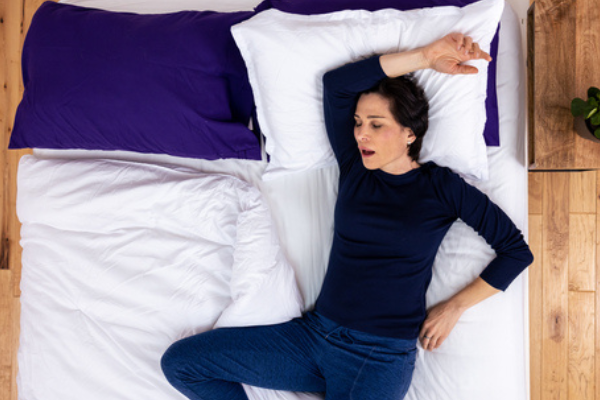

Mouth Breathing’s Effects on Sleep Quality
Mouth breathing doesn't just contribute to sleep apnea; it can also negatively impact overall sleep quality. When you breathe through your mouth while sleeping, you may experience:
- Increased Snoring: Snoring is a common side effect of mouth breathing during sleep. When you breathe through your mouth, the air flows unimpeded, causing vibrations in the throat tissues that produce the characteristic sound of snoring. Loud and frequent snoring can not only disrupt your own sleep but also disturb your partner's sleep, leading to strained relationships and poor sleep quality for both.
- Dry Mouth and Throat: Mouth breathing dries out the oral cavity and throat. The lack of saliva to moisten and protect the tissues can lead to a sore throat, dry mouth, and an increased risk of oral health issues like tooth decay and gum disease. Dry mouth can be particularly bothersome and uncomfortable upon waking.
- Restless Sleep: The increased effort required for mouth breathing can lead to restless sleep, frequent awakenings, and a lack of restorative deep sleep.
Morning Fatigue: Poor sleep quality caused by mouth breathing can leave you feeling tired and groggy in the morning, affecting your regular day-to-day function and clarity. - Sleep Disruption: Mouth breathing can lead to frequent awakenings during the night. When you breathe through your mouth, the body may interpret it as a sign of distress, potentially leading to micro-awakenings that disrupt the normal sleep cycle. These disruptions can prevent you from reaching the deeper stages of sleep, including REM (rapid eye movement) sleep, which is essential for memory consolidation and emotional processing.
- Oxygen Desaturation: Mouth breathing may result in lower oxygen levels in the blood compared to nasal breathing. In sleep apnea, this is exacerbated by the frequent pauses in breathing, leading to drops in blood oxygen saturation levels. These drops can cause brief awakenings and strain on the cardiovascular system, increasing the risk of heart problems over time.
- Increased Effort to Breathe: Breathing through the mouth during sleep often requires more effort than nasal breathing. The muscles in the throat and chest work harder to move air in and out, which can lead to increased muscle tension and discomfort. This added effort can result in a restless night's sleep and morning fatigue.
- Daytime Fatigue: The cumulative effects of disrupted sleep, oxygen desaturation, increased effort to breathe, and dry mouth can result in daytime fatigue and reduced alertness. Individuals who consistently experience these negative effects may struggle to stay awake during the day, leading to difficulties at work or in daily activities.
- Mood Disturbances: Poor sleep quality due to mouth breathing can also affect mood. Sleep deprivation and fragmented sleep can lead to irritability, mood swings, and an increased risk of depression and anxiety.
- Cognitive Impairments: Chronic sleep disturbances caused by mouth breathing can impair cognitive function. This may manifest as difficulties with concentration, memory problems, and reduced problem-solving abilities, impacting daily productivity and overall cognitive well-being.
Mouth breathing during sleep can have a cascading effect on sleep quality and overall health. It disrupts the normal sleep cycle, reduces oxygen levels, increases physical effort, and contributes to various discomforts, all of which can lead to a host of negative consequences for your well-being. Recognizing and addressing mouth breathing through appropriate interventions is essential to mitigate these adverse effects and improve the quality of your sleep and life.
Addressing Mouth Breathing and Sleep Apnea
If you suspect that you or a loved one is a mouth breather and may be at risk for sleep apnea or experiencing disrupted sleep, it's essential to consult a healthcare professional.
They can assess your condition and recommend appropriate interventions, which may include:
- Nasal Breathing Training: Some individuals can learn to switch from mouth to nasal breathing through exercises and training techniques.
- Nasal Decongestion: Over-the-counter or prescription nasal decongestants may help alleviate nasal congestion and encourage nasal breathing.
- Continuous Positive Airway Pressure (CPAP) Therapy: For individuals with sleep apnea, CPAP therapy provides a continuous flow of air to keep the airway open.
- Orthodontic or Oral Appliances: In some cases, orthodontic devices or oral appliances may help address mouth breathing and sleep apnea.
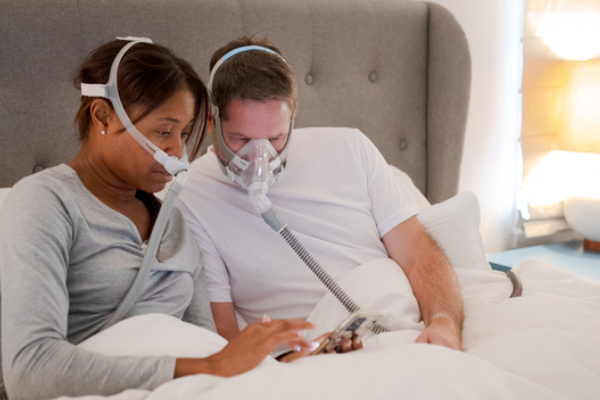

While mouth breathing may seem like a benign habit, its impact on sleep quality and the development of sleep apnea should not be underestimated. Recognizing the connection between mouth breathing and sleep disturbances is crucial for maintaining overall health and well-being. Seeking medical guidance and exploring interventions to encourage nasal breathing can lead to better sleep and improved overall health. Remember, a good night's sleep is vital for a healthy, productive life, so don't let mouth breathing stand in the way of your restful slumber.
Treatments That Can Help a Mouth Breather Who Has Sleep Apnea
When it comes to treating sleep apnea in individuals who are mouth breathers, it's important to consider options that can help maintain an open airway and ensure effective breathing during sleep. Here are some of the best treatment options for mouth breathers with sleep apnea:
- Continuous Positive Airway Pressure (CPAP) Therapy: CPAP machines deliver a constant and steady stream of pressurized air through a CPAP Mask. The purpose of CPAP therapy is to keep the airway open during sleep, preventing episodes of apnea (temporary cessation of breathing) and reducing snoring.
- Bi-level Positive Airway Pressure (BiPAP) Therapy: BiPAP machines provide different pressure levels for inhalation and exhalation. This can be beneficial for individuals who find it more comfortable to breathe out against lower pressure, which can reduce the sensation of air being forced out of the mouth.
- Adaptive Servo-Ventilation (ASV): ASV devices adjust the airway pressure in real-time, adapting to the patient's breathing patterns. This can be helpful for those with complex sleep apnea or central sleep apnea, which involves issues with the brain's respiratory control.
- Oral Appliances (Mandibular Advancement Devices): Oral appliances are custom-fitted dental devices that reposition the lower jaw and tongue to prevent airway collapse during sleep. They are especially beneficial for mild to moderate obstructive sleep apnea and can be suitable for mouth breathers. However, it's crucial to consult a dentist or sleep specialist for proper fitting and monitoring.
- Nasal Dilators and Strips: Nasal dilators, which are small devices placed inside the nostrils, can help improve nasal airflow and encourage nasal breathing, reducing the likelihood of mouth breathing during sleep. Nasal strips, applied externally on the nose, can also help open nasal passages and promote nasal breathing.
- Positional Therapy: Some individuals primarily experience sleep apnea when sleeping in specific positions, such as on their back. Positional therapy involves using devices or strategies to encourage sleeping in a position that reduces airway obstruction.
- Lifestyle Modifications: Weight loss, if applicable, can significantly reduce the severity of sleep apnea symptoms. Avoiding alcohol and sedatives before bedtime can help relax the throat muscles less, reducing the risk of airway collapse.
- Combination Therapies: In some cases, a combination of treatments may be necessary to effectively manage sleep apnea. For example, using a CPAP machine in conjunction with an oral appliance or positional therapy may provide comprehensive relief.
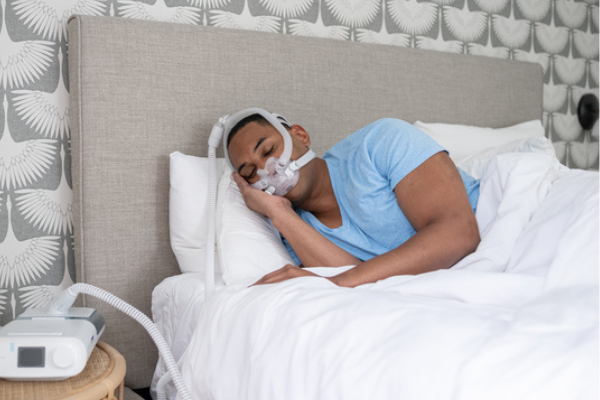

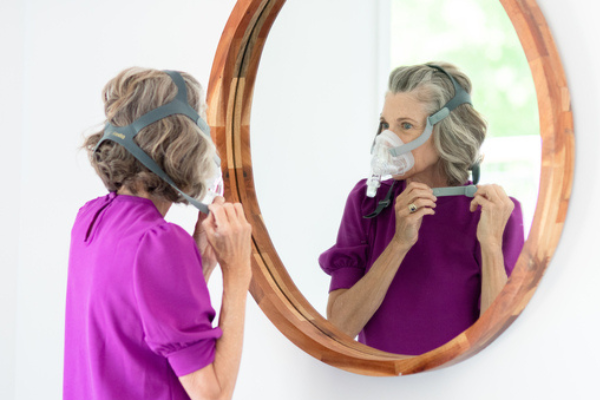

Additional products for mouth breathers using CPAP treatment
There are several products designed to help individuals with sleep apnea who are mouth breathers. These products aim to keep the airway open and facilitate effective breathing during sleep.
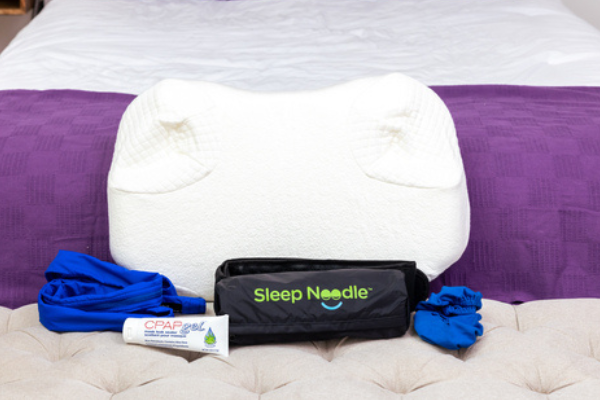

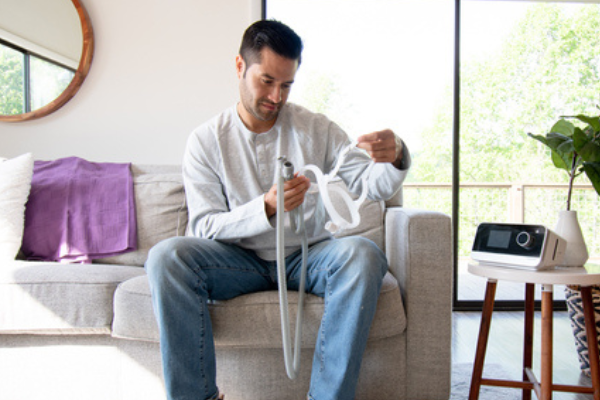

Here are some of the best products for sleep apnea treatment in mouth breathers:
- Full-Face CPAP Mask: Full-face CPAP masks cover both the nose and mouth, ensuring that air pressure is delivered effectively, even if the individual breathes through their mouth. They are suitable for mouth breathers who use continuous positive airway pressure (CPAP) therapy.
- Oral Appliances (Mandibular Advancement Devices): These custom-fitted dental devices reposition the lower jaw and tongue to prevent airway collapse during sleep. They are an effective treatment option for mild to moderate obstructive sleep apnea and can be suitable for mouth breathers.
- Hybrid CPAP Mask: Hybrid masks combine elements of both nasal and full-face masks. They have nasal pillows to seal the nostrils and a mouth cushion to accommodate mouth breathers, providing a comfortable fit.
- Chin Straps: Chin straps are designed to help keep the mouth closed during CPAP therapy. They can be used in conjunction with nasal masks or nasal pillows to encourage breathing through the nose.
- Tongue Retaining Devices (TRDs): TRDs hold the tongue in a forward position, preventing it from obstructing the airway. While not the primary choice for sleep apnea treatment, they may be an option for some individuals.
- Anti-Snoring Pillows: These specially designed pillows encourage side-sleeping and may help keep the airway open, reducing the likelihood of mouth breathing and snoring.
- Positional Therapy Devices: These devices are worn during sleep and provide gentle vibrations or positional feedback to encourage individuals to sleep in positions that reduce airway obstruction and mouth breathing.
- Humidifiers for CPAP Machines: Humidifiers can help alleviate dry mouth and throat, which can be common side effects of CPAP therapy for mouth breathers. They add moisture to the airflow, increasing comfort.
When considering any of these products, it's essential to consult with a healthcare professional or sleep specialist. They can provide guidance on the most suitable option based on the individual's specific needs, the severity of their sleep apnea, and their comfort preferences. Additionally, proper fitting and regular follow-ups are essential to ensure the effectiveness of the chosen product.

